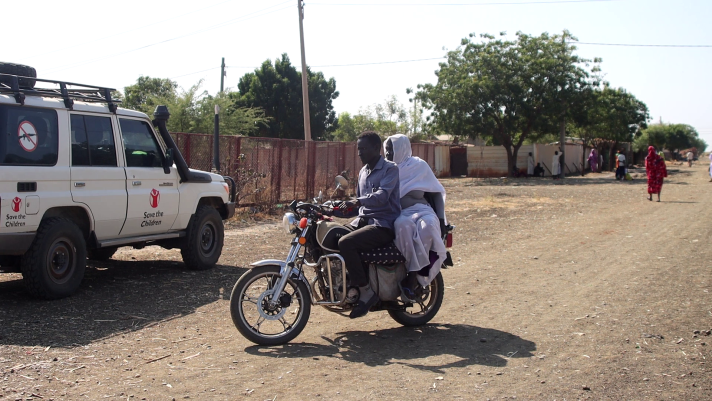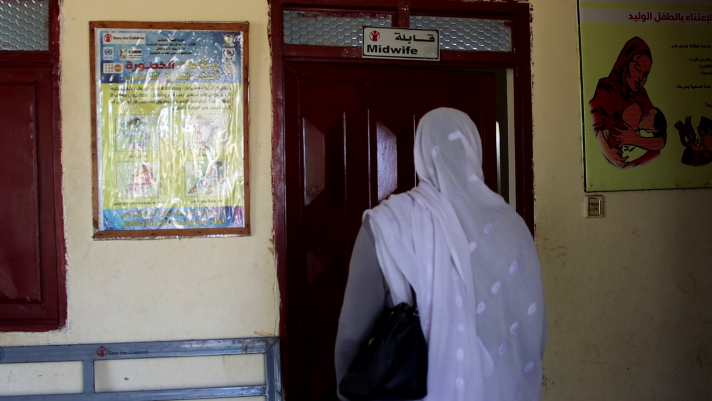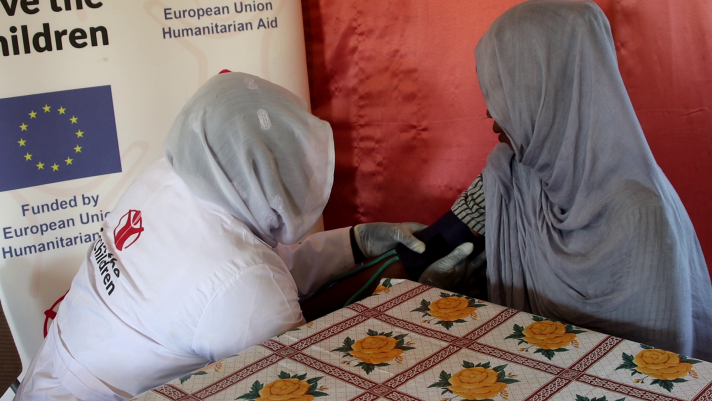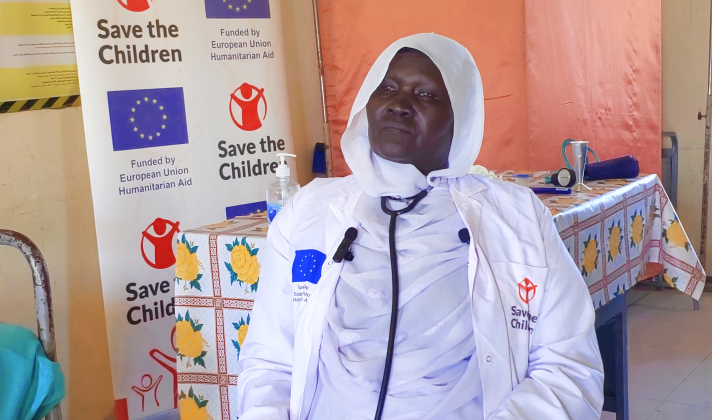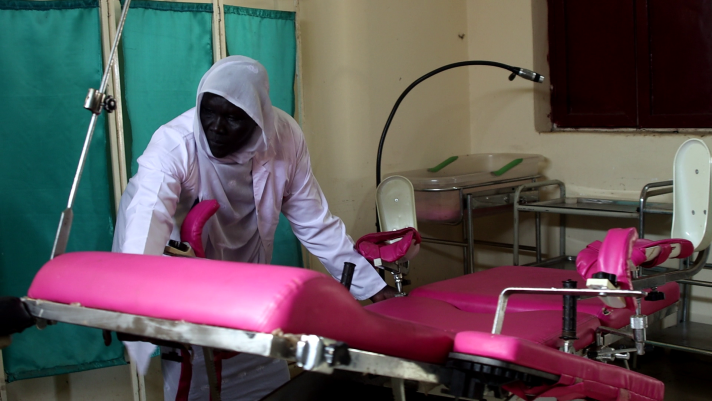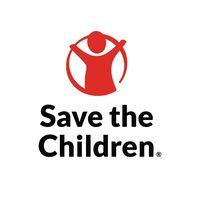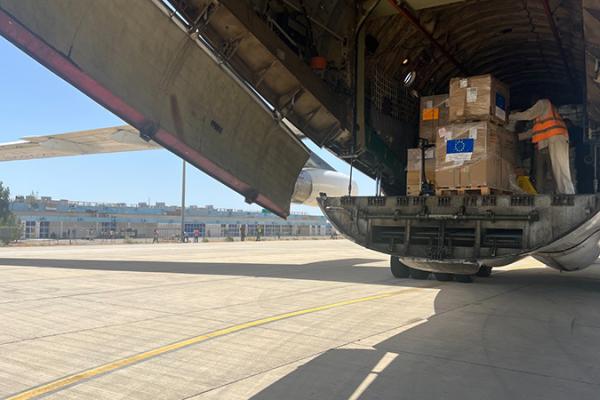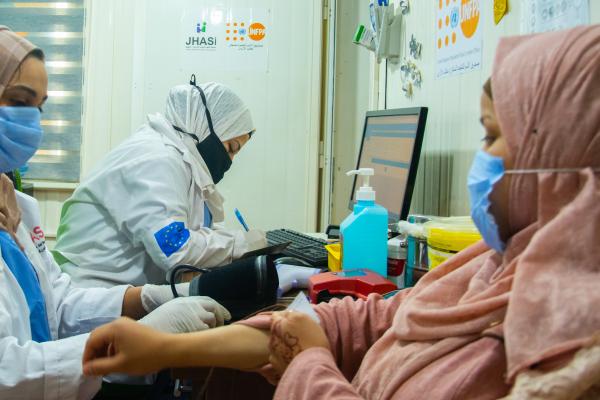In Sudan, conflict has resulted in the internal displacement of over 10 million people, the highest displacement in the world. The recent outbreak in April 2023 forced more than 9 million people from their homes, some for the second or third time. Prior to this, various localised conflicts over the last decades had already displaced approximately 3 million people. Women uprooted from their homes often suffer disproportionally, especially when they lack access to healthcare during pregnancy and childbirth.
Limon is a 65-year-old midwife working in a health centre supported by Save the Children with funding from EU Humanitarian Aid. The centre is in Madina 9, a densely populated community hosting a large number of conflict-displaced families. Resources, such as health care, are severely overstretched.
Save the Children, funded by EU Humanitarian Aid, supports the health centre through medical supplies, essential drugs, medical equipment, and incentives for staff operation and running costs, cleaning tools, clean delivery kits, lab equipment, and information materials. Thanks to this project, 130,935 vulnerable people are receiving life-saving healthcare interventions, without cost, across 5 states.
Limon herself fled conflict in her home area a couple of years ago. She understands the plight of women who have lost their homes and belongings and is dedicated to ensuring the well-being of mothers and babies, regardless of the circumstances.
She says, ‘I love my work, because I can support women who do not have the means to access standard healthcare. They need services and care during pregnancy and childbirth wherever they are and in whatever circumstances they find themselves.’
Limon's commitment to midwifery is rooted in a wealth of experience. Starting as a traditional midwife in her home village, she witnessed the challenges women faced during childbirth.
She remembers, ‘My sister worked as a midwife and asked me to help her. The first birth took 4 hours, and the mother was in a lot of pain. When the baby finally emerged healthy, I was so relieved and happy. Ever since, I knew I wanted to become a midwife.’
Despite the wealth of traditional knowledge passed down through generations, Limon decided to undergo professional training at a midwife school in 2015 to enhance her skills and obtain official certification.
Limon says, ‘I was eager to learn and improve my skills. My priority has always been to ensure that the women and their babies are safe.’
In 2022, conflict disrupted Limon's life, displacing her and hundreds of thousands of others. When the situation stabilised, Limon was asked to work at the health centre in Madina 9, a community hosting many IDPs from the state — a call she readily accepted.
‘I really want to help the women affected by conflict as much as I can. They need services like any other woman; otherwise, the risk of death for the mother or baby is high.’
Despite the challenging conditions, including nearly unpassable roads during the rainy season, Limon remains dedicated to reaching the health centre. Whether walking or using a motorbike, car, or even a donkey cart, she ensures timely responses to calls for births, even during nighttime emergencies. Limon acknowledges the limitations in medical tools but emphasises the importance of transferring mothers to hospitals in Damazin or nearby areas when complications arise.
She says, ‘When the baby is in the wrong position it can be very dangerous. If I realise there is any complication, we transfer the women to larger hospitals.’
Proudly, Limon declares that no woman or baby has lost their life since she started working at the health centre, even in the face of challenging births. She expresses gratitude for the support provided by Save the Children, funded by EU Humanitarian Aid, which ensures a consistent supply of necessary medical materials, enabling her to carry out her work in the safest manner possible. The funding also covers the transfer of women to hospitals when experiencing complications during deliveries.

